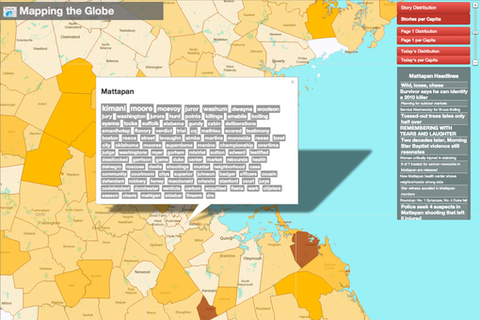Location! The Importance of Geo-Data
The proliferation of location-aware devices and geo-tagged data raises important questions: what will happen as more and more of the content we create online is automatically tagged with locational data? What can we learn from this profusion of geographic information? With this data we can find restaurants, friends and sex partners (a la Grindr.com), visualize inequalities in media attention, develop epidemiological models to predict the spread of diseases, find dissident safe houses in times of political upheaval and coordinate crisis response. But who is contributing data and who is not on the map? How are our social relationships being transformed? What about privacy? What about civic participation? Serious questions are mounting - this panel aims to raise several of them, and explore the transformative power this shift may bring.
Presenters

Catherine D'Ignazio is an artist, software developer, and researcher. She is the Director of the Institute for Infinitely Small Things, an interventionist performance troupe, and former Director of the Experimental Geography Research Cluster at RISD's Digital+Media MFA program. Catherine is a Research Assistant at the Center for Civic Media at the MIT Media Lab researching experimental ways of engaging more deeply with place and spatial justice issues through storytelling, maps, media, social practice and algorithms.
Hello. Internet.

Mark is Director of Research and a Research Fellow at the Oxford Internet Institute. His research focuses on Internet and information geographies, and the overlaps between ICTs and economic development.




